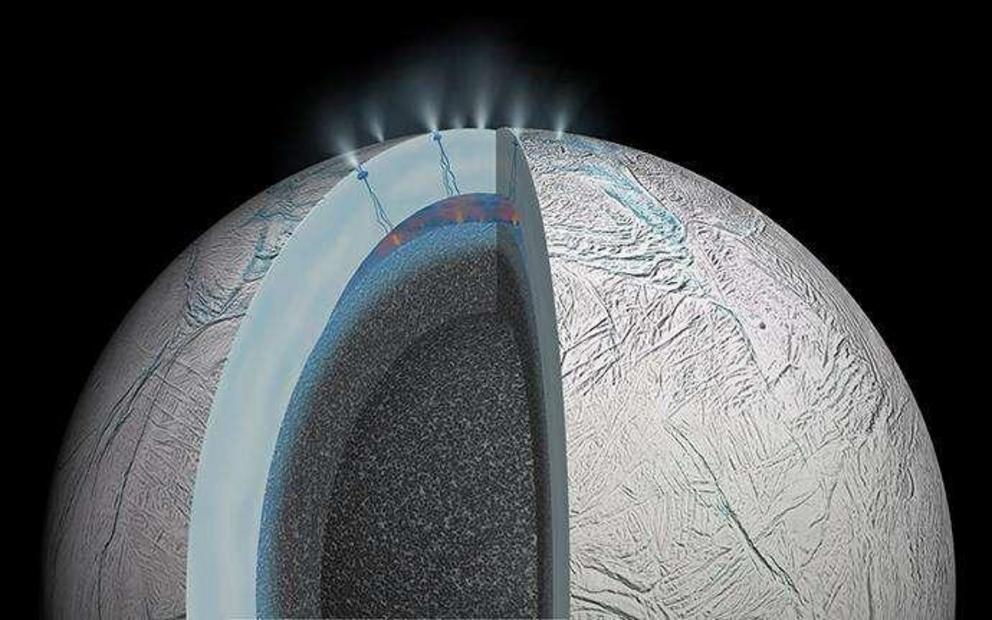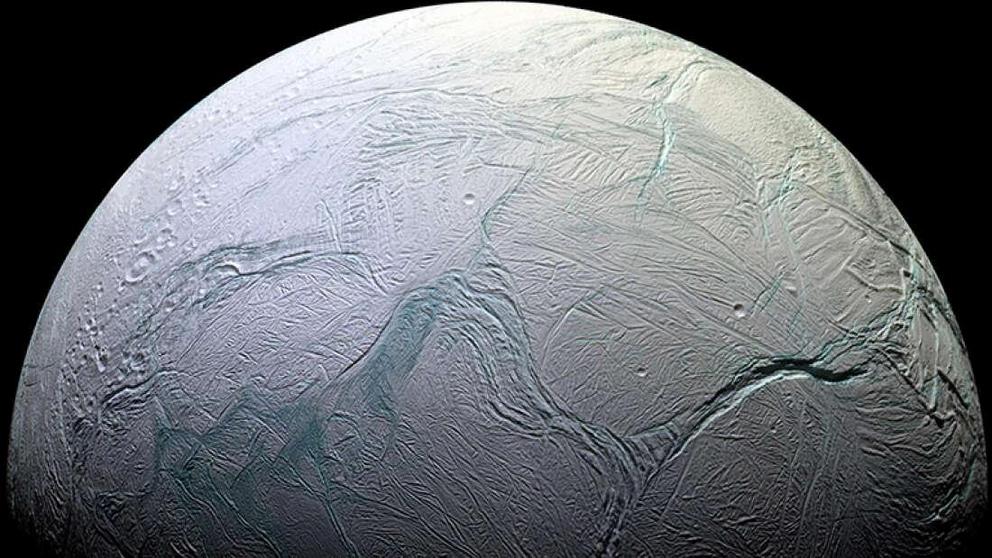Methane detected in the plumes of Enceladus could be a sign of life
Enceladus is one of the moons of Saturn, a world famous for a deep ocean hidden beneath its icy shell and plumes that visibly escape into space. When the Cassini spacecraft flew through them it detected both simple and complex chemicals, hinting at a lot of activity going on inside the moon, including hydrothermal vents on its ocean floor.
The surprisingly large detection of methane, in particular, was interesting. The molecule can be formed by geological processes (abiotic) as well as by living organisms here on Earth. Astronomers were interested in working out the probability that this methane signature could be a sign of life. In a new study in Nature Astronomy, they found that the geological explanation alone is not enough to explain the amount of methane seen by Cassini.
According to the researchers, this is the case as long as the probability of life emergence on Enceladus is high. If life is rare elsewhere in the universe, then the higher probability tells of an uninhabited object with maybe primordial sources of methane slowly being lost to space.
"Obviously, we are not concluding that life exists in Enceladus' ocean," co-author Professor Régis Ferrière from the University of Arizona said in a statement. "Rather, we wanted to understand how likely it would be that Enceladus' hydrothermal vents could be habitable to Earthlike microorganisms. Very likely, the Cassini data tell us, according to our models."

Artist's rendering showing possible hydrothermal activity that may be taking place on and under the seafloor of the moon's subsurface ocean. Image credit: NASA/JPL-Caltech
"And biological methanogenesis appears to be compatible with the data. In other words, we can't discard the 'life hypothesis' as highly improbable. To reject the life hypothesis, we need more data from future missions," Prof. Ferrière added.
The statistical framework for this analysis is known as Bayesian statistics and for this approach to work, it is important to estimate the probability that your hypothesis is correct. For this reason, it’s important to investigate different hypotheses that may or may not be correct.
"It partly boils down to how probable we believe different hypotheses are to begin with," Ferrière continued. "For example, if we deem the probability of life in Enceladus to be extremely low, then such alternative abiotic mechanisms become much more likely, even if they are very alien compared to what we know here on Earth."
While the statistic is unlikely to confirm the presence of alien organisms on Enceladus, it does give hints on what is necessary to investigate to get closer to the truth. Especially given the fact that we don’t expect to be diving into the moon’s ocean any time soon.

